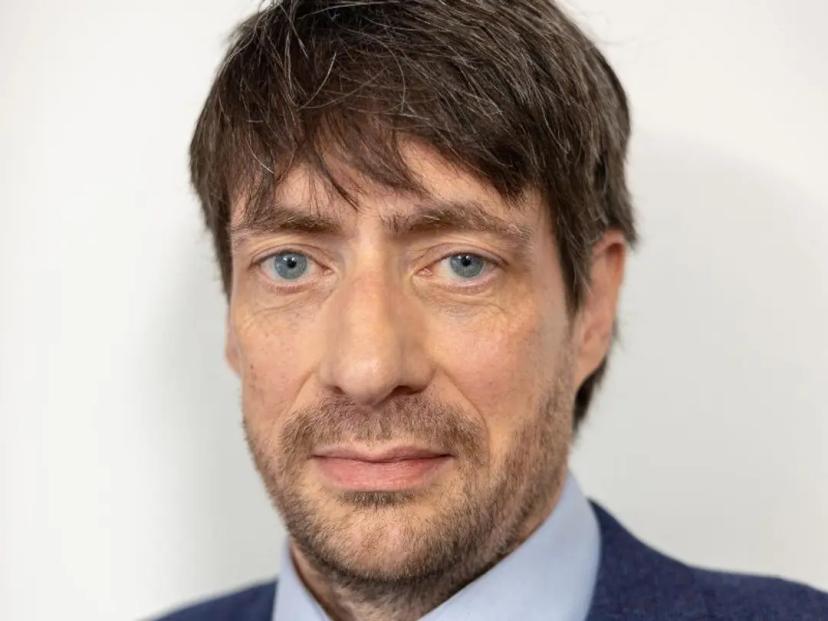CLINICAL24: The IBMS on overcoming challenges in biomedical science
David Wells, Chief Executive of IBMS and CLINICAL24 Ambassador, shares insights on tackling diagnostic challenges and optimizing the biomedical science workforce
7 Oct 2024

David Wells, Chief Executive, Institute of Biomedical Science (IBMS)
David Wells, the Chief Executive of the Institute of Biomedical Science (IBMS), is a key figure in the field of biomedical science and a CLINICAL24 Ambassador. Wells has significant experience in the field and advocates for the modernization of diagnostic services in healthcare. His work, particularly during the COVID-19 pandemic, has played a key role in addressing the challenges faced by clinical laboratories today.
Wells’ vision for the biomedical science workforce extends far beyond the UK, and his forward-thinking approach to workforce development and innovations in diagnostics, will help to ensure that the laboratories of the future are able to meet healthcare system challenges.
Dedicated to excellence in biomedical science
David Wells began his journey in biomedical science after completing IBMS-accredited BSc and MSc courses at Anglia Ruskin University. His early career as a Biomedical Scientist at Addenbrooke's Hospital in Cambridge laid a strong foundation for his leadership in laboratory management roles. Over the years, Wells' expertise led him to Great Ormond Street Hospital, where he became the first Lead Healthcare Scientist, responsible for an entire healthcare science workforce.
Later, Wells took on senior roles at Viapath, one of the largest pathology services in the UK, covering King's College Hospital and Guy’s and St. Thomas’ Hospitals. His understanding of laboratory science management prepared him for his next milestone: leading the NHS England and NHS Improvement Pathology consolidation program. This role, where he streamlined pathology services nationwide, proved critical during the COVID-19 pandemic.
Leadership in the COVID-19 response
As Head of Pathology at NHS England, David Wells played a central role in managing the laboratory response to COVID-19. Tasked with deploying technology, securing funding, and coordinating a workforce to meet the surging demand for COVID-19 testing, Wells' efforts ensured England met its ambitious goal of delivering 100,000 tests per day in April 2020. His leadership not only optimized the country's testing capacity but also set new standards for laboratory efficiency and innovation during a global health crisis.
In recognition of his contributions, Wells received the Honorary Fellowship from the Royal College of Pathologists (RCPath) in 2020 and was awarded the Alumni Frontline Service Award by Anglia Ruskin University in 2021.
Advancing pathology with technology
As Chief Executive of the IBMS, David Wells continues to be an advocate for the integration of technology in pathology. During a discussion on clinical laboratory challenges with Sonia Nicholas, Managing Editor and Clinical Lead at SelectScience® during CLINICAL24, Wells says that automation, when thoughtfully applied, could revolutionize diagnostic services by increasing efficiency and reducing human error. However, Wells emphasizes that technology must be deployed intelligently. Not every process should be automated — only those that genuinely enhance patient outcomes and improve laboratory workflows.
Wells has also been a consistent advocate for expanding the roles of biomedical scientists to address workforce shortages. He promotes a collaborative approach, encouraging professionals to maximize their expertise and contribute in ways that add the most value to patient care.
Addressing the challenges of modern healthcare
One of the biggest challenges faced by clinical laboratory scientists today is the rising cost of diagnostics and healthcare. Wells emphasizes that the only way to navigate this is through smarter use of resources. He advocates for early diagnostic testing, which can lead to better patient outcomes and reduced long-term healthcare costs. By leveraging technology and workforce innovation, he envisions a healthcare system where laboratories can deliver more for less, without compromising on quality.
A vision for the future of biomedical science
David Wells’ vision extends beyond the UK, as he recognises biomedical science as a global discipline, where innovations in diagnostics can help address healthcare inequalities. His forward-thinking approach to workforce development, technology, and education aims to ensure that biomedical science continues to meet the challenges of tomorrow's healthcare systems.
